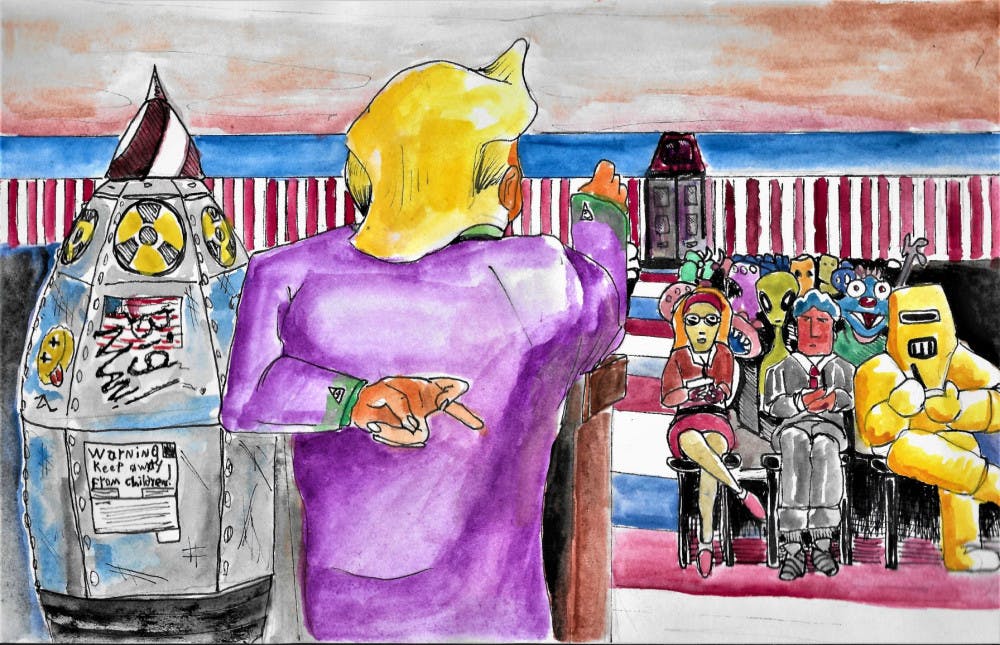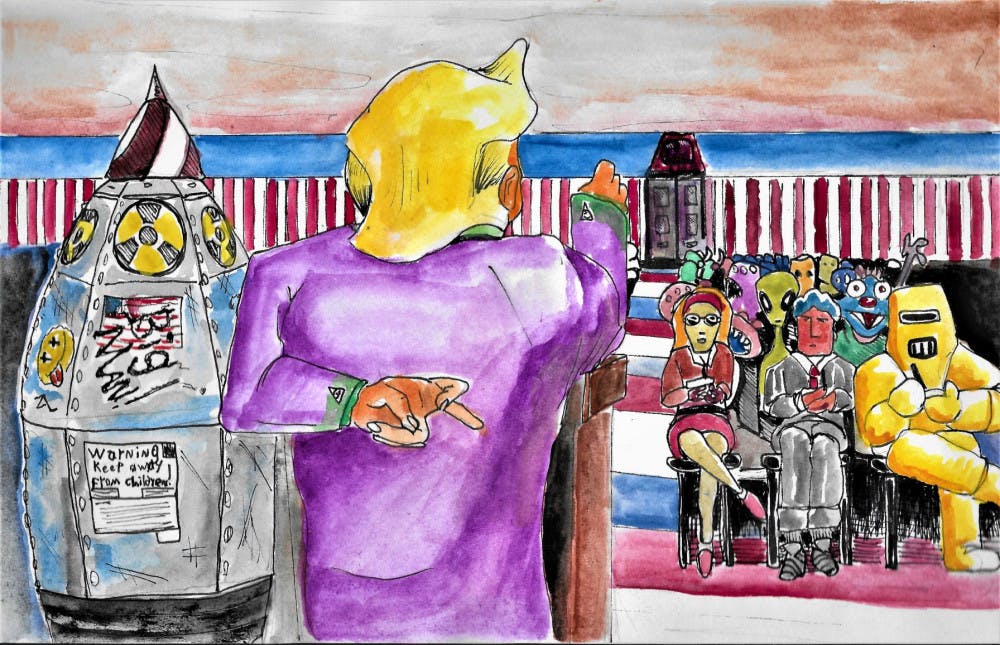North Korea’s latest test launch of their new intercontinental ballistic missile on Nov. 29 has caused President Donald Trump and his administration to respond in various ways, and the American public has been placed in a state of unease.
According to a Nov. 2017 study by Pew Research Center, seven out of 10 United States citizens, or 71 percent, said the United States should take North Korea’s nuclear threats “very seriously.†This is up from 56 percent in 2013. In the same study, 84 percent said they think Trump is “really willing to use military force against North Korea.â€
Despite Trump’s threats to retaliate, North Korean leader Kim Jong-un has remained steadfast in his quest for perfecting his country’s nuclear weapons program. The Hwasong-15 was Pyongyang’s third intercontinental ballistic missile, according to the Pentagon, and its 20th overall missile launch of 2017, according to Alexandra Bell, senior policy director for the Center for Arms Control and Non-Proliferation and the Council for a Livable World. The success of Hwasong-15’s launch prompted Kim to state his regime has “finally realized the great historic cause of completing the state of nuclear force.â€Â
Still, University of Memphis history professor and military expert Stephen Stein said a nuclear war is unlikely between the U.S. and North Korea.
“The whole point of nuclear weapons is not to use them,†Stein said. “For whatever reason, the leaders of both the U.S. and North Korea appear interested in encouraging hysteria about nuclear weapons and possibilities of nuclear war. North Korea built its nuclear arsenal (and continues to expand it), not to start war, but to deter war.â€
Taking into account the public jabs between the two national leaders, it may not be difficult to see why nervousness has set in on the home front. Trump has continued to call Kim “Little Rocket Man†and Kim has countered by calling Trump “the mentally deranged U.S. dotard.†In an emergency meeting at the United Nations Security Council, U.S. Ambassador Nikki Haley joined the fracas following North Korea’s triumphant test run of Hwasong-15.Â
“We have never sought war with North Korea and still today, we do not seek it,†Haley said, according to multiple news outlets. “If war comes, make no mistake, the North Korean regime will be utterly destroyed.â€
In light of nuclear threats from North Korea, Hawaii has taken precaution by implementing special air-raid sirens intended for warning residents of impending nuclear missile attacks, which have not been utilized since the Cold War. In California, the Los Angeles-based Joint Regional Intelligence Center issued a 16-page “Nuclear Attack Response Considerations†bulletin instructing readers on how to elude radiation by remaining in a face down position with your hands placed under your body to protect exposed skin.Â
Nicole Detraz, U of M political science professor and international relations expert, said the U.S.’s current relationship with North Korea is similar to its situation with the Soviet Union before and after the launch of Sputnik in 1957. While the U.S. is certainly aware of North Korea’s technological advancements much like they were with the Soviet Union’s, Detraz said war is improbable and cost-inefficient.
“Nuclear states have to assume that if they strike first, the state that they attack would launch a counter-strike,†Detraz said. “The U.S. nuclear arsenal is such that a counter-strike would be absolutely devastating, and the North Korean administration knows this.â€





